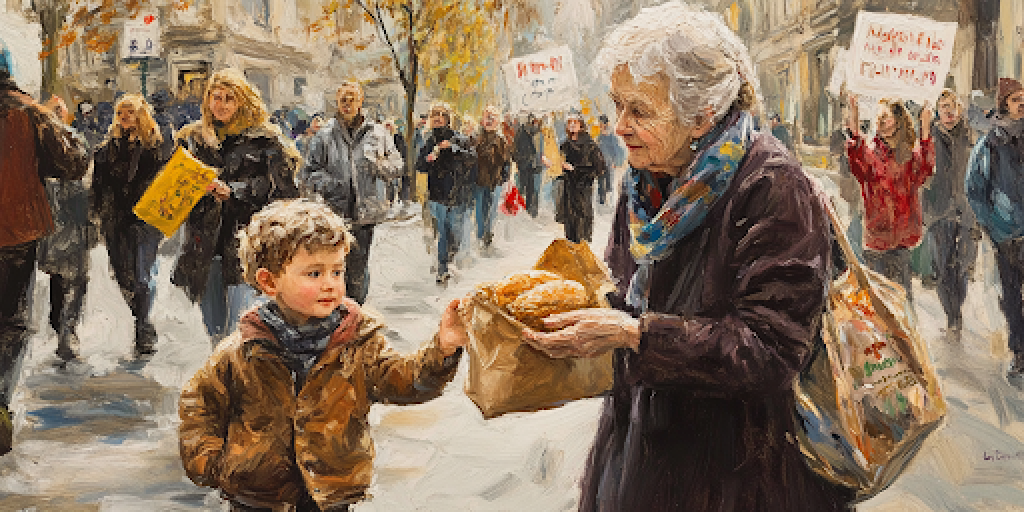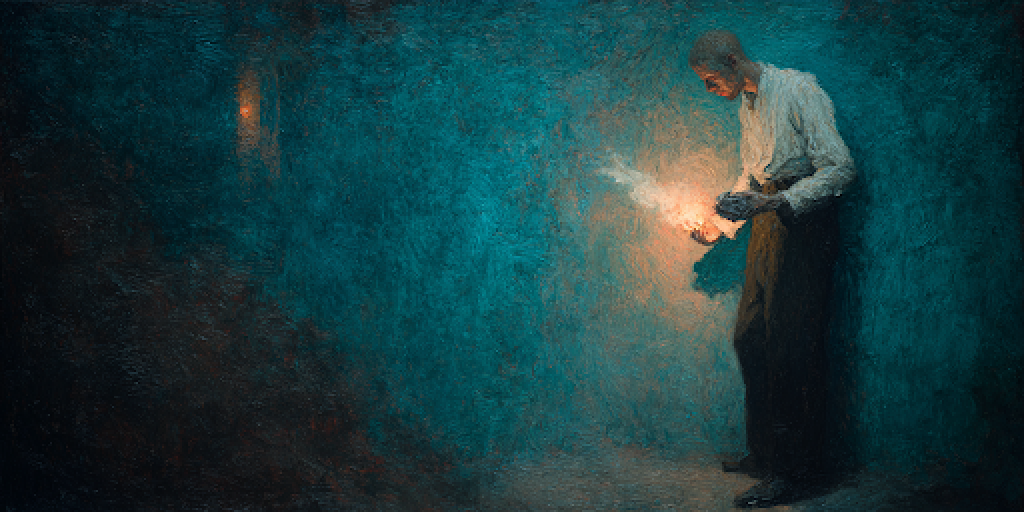It begins with a man and his wife, telling a story about the wife’s black-sheep brother. You can tell they’ve told it before, as couples do; it’s become a performance—a dance. The woman wants you to know her wedding was going to be perfect, and then her brother said it might. not. be. perfect. Can you believe him? How was she supposed to stay calm after that? She is not responsible for what happened next.
The man knows his wife is ridiculous, but he loves her. He’s perfectly sincere when he calls her “mi vida” and declares their rain-wrecked wedding a joyous day. As couples do, they complement; they know their places in the dance. She’s the flower; he’s the stalk that shows her off and keeps her grounded. And if you find them both a little obsessed with the wife’s emotional state, well, if your emotions controlled the weather, you’d probably pay close attention to them, too.
It begins with the man and his wife, but it doesn’t end there. They’re part of a family, and they’re not the only ones who want to perform. Their daughter, their son, their niece, their neighbors: everybody’s talking about Bruno because nobody’s talking just about Bruno; in telling you about Bruno, they’re telling you about themselves. But do you know what life would really be like if you were a superhero? It’d be like life.
And so they go on, layer upon layer, talking about Bruno, talking about themselves, talking about each other, and each person’s heart is revealed through his relationships with his family. It’s the sort of compact musical storytelling you expect from Mozart or Verdi, but it’s more than that. It’s a musical expression of what a family is. It’s perichoresis. It’s souls becoming themselves only in and through each other.
Which is, of course, what the rest of the movie is about, too.
Somewhere in an alternate universe, there’s a tape of Lin-Manuel Miranda pitching Encanto to Marvel Studios. They love it. They’ve run out of pagan gods and ethnic stereotypes, they’re bored of the whole billionaire-genius-inventor thing, and somehow somebody convinced them they can’t just keep rebooting Spiderman over and over. (Definitely an alternate universe.) So, though the Excel-masters tsk-tsk at the risk of untested IP, the creative heads overrule them and decide an unknown family of Colombian superheroes is exactly what they need.
Only … it doesn’t quite work as-is, you know? I mean, when you start and end the story in the same isolated mountain village, it’s hard to tie you into Phase Twelve or whatever we’re on now; if Loki showed up, you’d immediately hear a posh whine, “What on earth are we doing here?” Also, who’s the bad guy supposed to be? And where are the world-shaking—no, universe—no, multiverse-shaking stakes? The good guys win and … heal some family relationships? Come on, nobody’s going to care about that.
And so, in the Marvel writers’ room, a new Encanto takes shape…
In the Encanto from our universe, Abuelo Pedro’s death comes at the hands of faceless horsemen. We don’t know who they are or why they’re doing this, and it doesn’t matter. But in Marvel’s version, when a horseman lowers his bandana and stares into the camera, he is none other than El Toro Blanco, and chills run down the fans’ collective spine as they remember his iconic two-page cameo in The Incredible Crimson Cockroach #87, a limited issue from 2003.
Toro is foiled, and the rest of the family escapes—for now. But when the family’s powers weaken, Toro is ready. He now rules Colombia’s coffee country with an iron fist, searching for the magic beans that will give him powers of his own so he can take vengeance on Thor, who’s gone gray and retired to Boca and has no idea what’s coming.
Will our heroes put aside their differences and fight as a team? Will Mirabel discover her powers in time to stop El Toro Blanco? Will Chris Hemsworth’s next shuffleboard match be tragically cut short?
That’s the thing about the Marvel movies. It doesn’t matter whether your story starts in a high-tech research facility or a prison or a mock-1950s sitcom—it will end with a climactic battle, and for the most part, your usefulness in the battle will determine your screen time in the movie. If you have power, if you can do violence, then Marvel thinks you’re worth telling a story about. If not, maybe you can be a funny sidekick or get rescued or something.
But do you know what life would really be like if you were a superhero? It’d be like life. If you had super strength, you’d spend a lot of time moving heavy things for family and friends. If you could stretch like that guy from Fantastic Four, you’d mostly use it to reach stuff that fell behind the fridge. And the things you cared most about? Your spouse’s love, your friends’ respect, your children’s growth and happiness and friendships with each other? You’d find your superpower guaranteed you none of it and might even get in the way.
In fact—and here’s one of life’s hard lessons—nothing else can guarantee you those things either.
Ay, oruguitas, don’t you hold on too tight! Family may be a mortal imitation of the perfect union of the Godhead itself, but that means it’s made out of mortals, and mortals are finicky things. It’s like building a house with living trees for your wall studs: you build it just like you want, and then you move in and forget about it until one day you realize the trees have grown faster here and bent outward over there and the branches holding up your ceiling have died; until your walls aren’t straight and your floors aren’t flat and your roof’s about to cave in. And so you take out your tools and adjust it, and live some more, and adjust some more, and so on until it’s nothing like the house you started with or any house you would have chosen, but it’s still somehow your house, even more than it was when you began.
Except Encanto’s metaphor—caterpillars and butterflies—is better than mine because trees can’t fly away. Your family members can, and from time to time, you’ll give them reason to. You’ll expect them to fill the roles that need filling, and you’ll forget to ask whether they’re under too much pressure (Luisa) or what else they might want to be doing with their lives (Isabella). Or you’ll think they can’t fill any role at all (Mirabel), resenting that they take so much of your time and failing to see the widow’s mites they drop in your treasury for the treasures they really are.
And when they feel like flying, power is useless. You can’t keep everyone together by force. As the song says, you have to learn to hold each other; you fly apart and reunite; you hope that when the changes come, and the old relationships stop working, your family will yearn like you to build them all anew. You hope that when some of your butterflies stop fluttering, new caterpillars will be willing to take their place—you hope, knowing that if they aren’t willing there won’t be much you can do about it.
Can I say how much I love having a movie about this? Oh, I know it’s not perfect. Hollywood hates old people, so Abuela is awful to Mirabel in ways that don’t always make much sense. All the male characters (save one) are useless, and most of them are punchlines; watching the movie, my daughter spontaneously lisped through her missing teeth, “I don’t like how they make all the men silly.”
And while Encanto’s story is a true one because sometimes families do hold on too tight, I wish I saw more movies about the opposite true story—the one where the family grows too loose, the miracle’s illness is individualism, and the cure is for family members to sacrifice their personal dreams and build up the family. Instead, Encanto might be taken to deny that story: it leaves the miracle’s illness and cure so vague that some viewers probably thought the problem was the family’s expecting anything at all from its members, and the solution was to stop caring what your family wants.
But not a single Madrigal does that or even considers it. Not one imagines a life outside the family—for all of them, a life inside the family miracle, sharing their gifts and blessing their neighbors, is their highest dream.
Note that they call them “gifts,” not “powers,” and they admit it’s all a “miracle,” something they didn’t do themselves and couldn’t have done themselves, something they can try after the fact to deserve but can never actually earn. (Abuela starts to forget this; it’s one of the reasons things go wrong.) And at the root of the miracle and all their gifts lies not a radioactive spider or a giant space robot or a genius with magic vitamin shots; no grand Promethean moment in which power begetting power leaves humanity behind to become “super.” Instead …
It begins with a man and his wife, normal people—not super, just human. It begins with a smile across the street, with a shared meal and kind words and laughter, with a wedding candle and a kiss. It begins with birth, already a miracle no matter how many times it’s happened. If you had super strength, you’d spend a lot of time moving heavy things for family and friends.
Then something happens in the flesh that always happens in spirit: power, assailing love, destroys itself instead, while even in dying love makes life, like a caterpillar entombed in its cocoon or a wheatcorn buried in the ground.
And two generations later, when the miracle needs saving, who saves it?
The powerless one. And she prevails not by violence but by forgiveness.
So let Marvel keep spewing its postmodern paganism, its power-worship, its contempt for everything merely human. It’s entertaining sometimes, and sometimes if you squint hard enough you can see it stumble and smack its head on something like moral truth.
Let it keep spewing because it’s sterile. Across dozens of movies, its dozens of reproductive-aged heroes have birthed a grand total of one child, and in the long run, Marvel itself will have no greater posterity.
So when I want life, and that in abundance; when Marvel’s contrived crises have ceased to excite; when existence is too real to tolerate such emptiness, and my hopes rise higher than mere power can aim; when I’ve discovered the courage of the meek and the glory of the humble—
In short, when I’ve learned to see God not only in excellence but even more in the powerless, in the defeated, in a peasant dying on a cross, then I can be grateful—grateful that while the rest of the culture pours billions into its so-called super “heroes,” a film like Encanto can still show us the real thing.

















